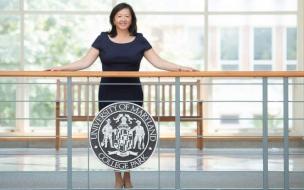They’re the couples who spend their romantic candle-lit dinners scrolling, liking, and commenting; the commuters who stare glumly at their screens on the train, or bash clumsily into you as they walk and thumb; and the I’ll-be-there-in-a-minute-sorry-I-didn’t-hear-you-too-busy-lost-in-the-vortex-of-Instagram-explore family member.
In the age of attention, we have none.
Your Facebooks, Amazons, and Netflixes thrive on our attention, building caverns of data on which their growth depends. But, at what point do they cross the line? Should we open our lives to them as freely as we open the curtains in the morning? And is it too late to change?
As the future leaders of business, MBAs need to know how to strike a balance between profit margins and invasions of privacy. Managing data responsibly and handling technology ethically should be the minimum requirement from graduates of today’s business schools.
BusinessBecause caught up with two professors from the University of Maryland’s Robert H. Smith School of Business, to find out what MBAs need to know about the darker side of tech.
A message from 1980
Hank Boyd (pictured below, right), clinical professor of marketing at Smith, thinks The Police said it best in 1980 with Don’t stand so close to me. Technology companies just need to know when to back off. Cue Sting marching into Mark Zuckerberg’s office complaining he feels watched every breath, move, bond, and step he takes.
MBAs should know that all is not lost, and that Hank believes companies can still operate both effectively and ethically.
“It’s a golden opportunity for wise firms to be savvy, get in front of the curve, and establish a set of gentlemanly rules to approach this, as oppose to getting governments involved with heavy regulation,” he says.
He also thinks it’s time to shift the conversation to the consumer. They are so engaged with brands and communities that it’s much easier now to create communication channels with customers.
“You can reach out, ask if they’re comfortable, what they like, where we can scale back,” he thinks. “They can give you a sense of where those boundaries lie.”
Educating tomorrow’s leaders
On the Smith MBA, professors are always keenly aware of social responsibility, Hank says. He tells his students that they are the leaders of tomorrow, and they have a responsibility to sit down and think through the decisions they’re making.
If a decision will lead to short term sales growth, great, but what are the long-term implications? MBAs should ask questions and stay on top of any adverse consequences resulting from their business decisions.
“The ability to look a couple of steps ahead can make a big difference as far as how a company comes across,” Hank explains.
Attention span in the classroom
With the increase of tech in the classroom, has attention-span become a problem?
Partly, says Hank. He sees a split between MBAs who think with an old-school mind—that is, it’s lecture time, so I need to get my pencil and paper out and take notes—and those who rely heavily on technology.
Those who process the old way tend to do very well on his courses. The folks who have all the best tech in the world at their disposal, their tablets and laptops, are taking notes but always risk a concentration slip, a peek at what is going on in the social media stratosphere.
Wendy Moe (pictured below), associate dean of master’s programs and dean’s professor of marketing at Smith School of Business, thinks the onus is on the professors.
“I think attention span has always been a problem in the classroom, now we just have tech to facilitate it. In the past, students would pass notes, communicate nonverbally, or doodle on paper.
“I think a good classroom and professor will engage students’ minds regardless of what technology they have. From my perspective, if students aren’t paying attention it’s not technology’s fault, it’s my fault.”
Why transparency is key
Wendy says that MBA students at Smith are being taught how technology is used, how analytics works, and the implications of algorithm-led targeting.
Over the past year there has been a series of faculty-led seminars looking at ethics and privacy alongside economic policy. Wendy led a seminar on data tracking and online targeting, and next year is helping to formalize the series into capstone electives for Smith students.
She thinks that if MBAs are going to graduate and use data to assist their profit maximizing strategy then they have to understand where data and analysis comes from.
“They have to know how to make trade offs consistent with their organizations values and theirs, and how to deal with customers,” she says.
“I think the big missing piece right now is a component on consumer education. The more you let consumers know what’s going on, and let them have a choice, they’ll be more satisfied customers.”










